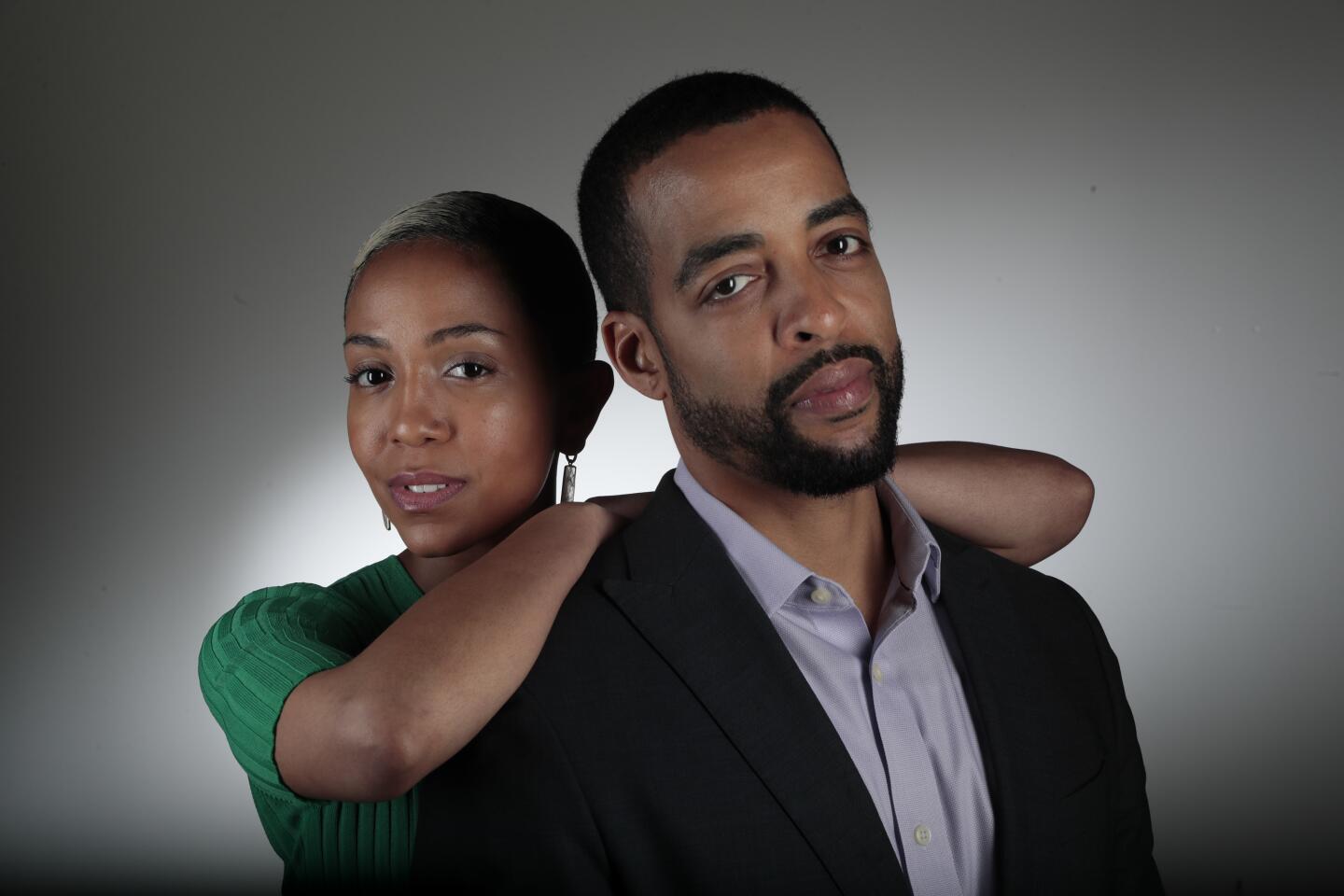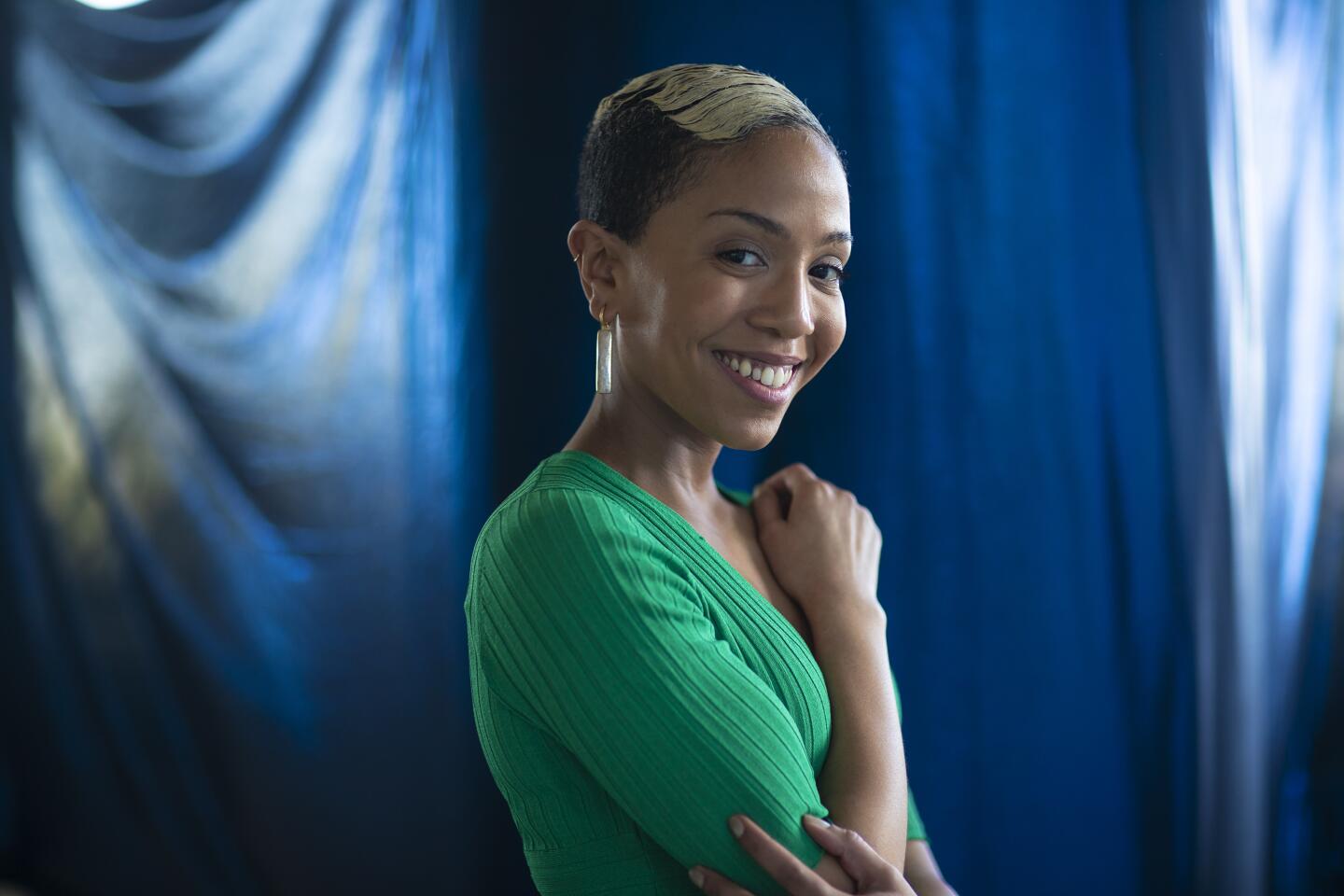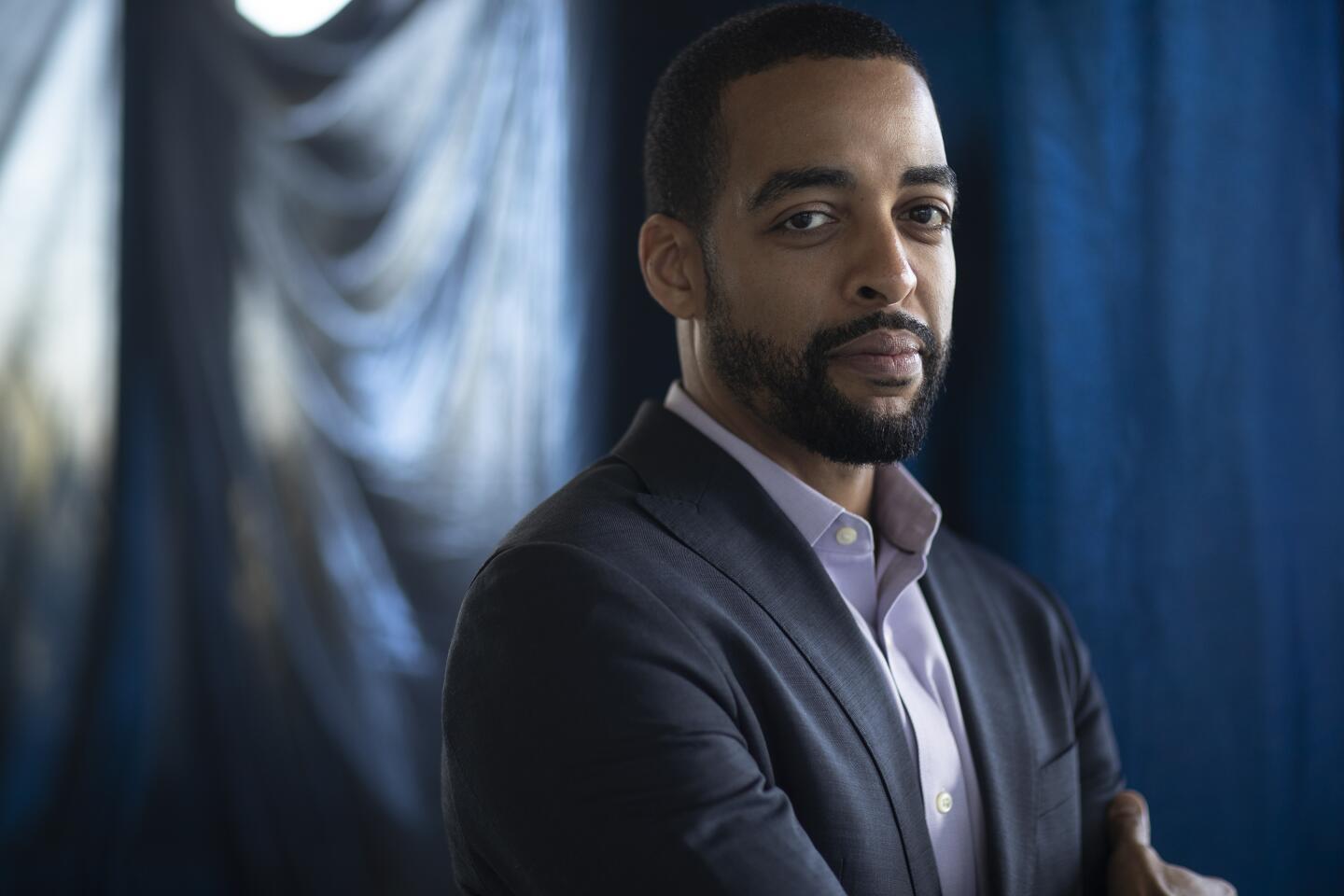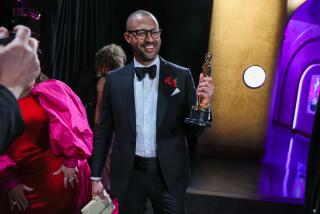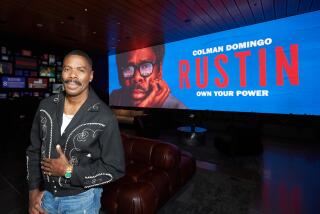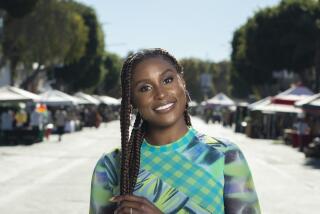Indie romance ‘Premature’ challenges Hollywood by portraying black love, not black pain
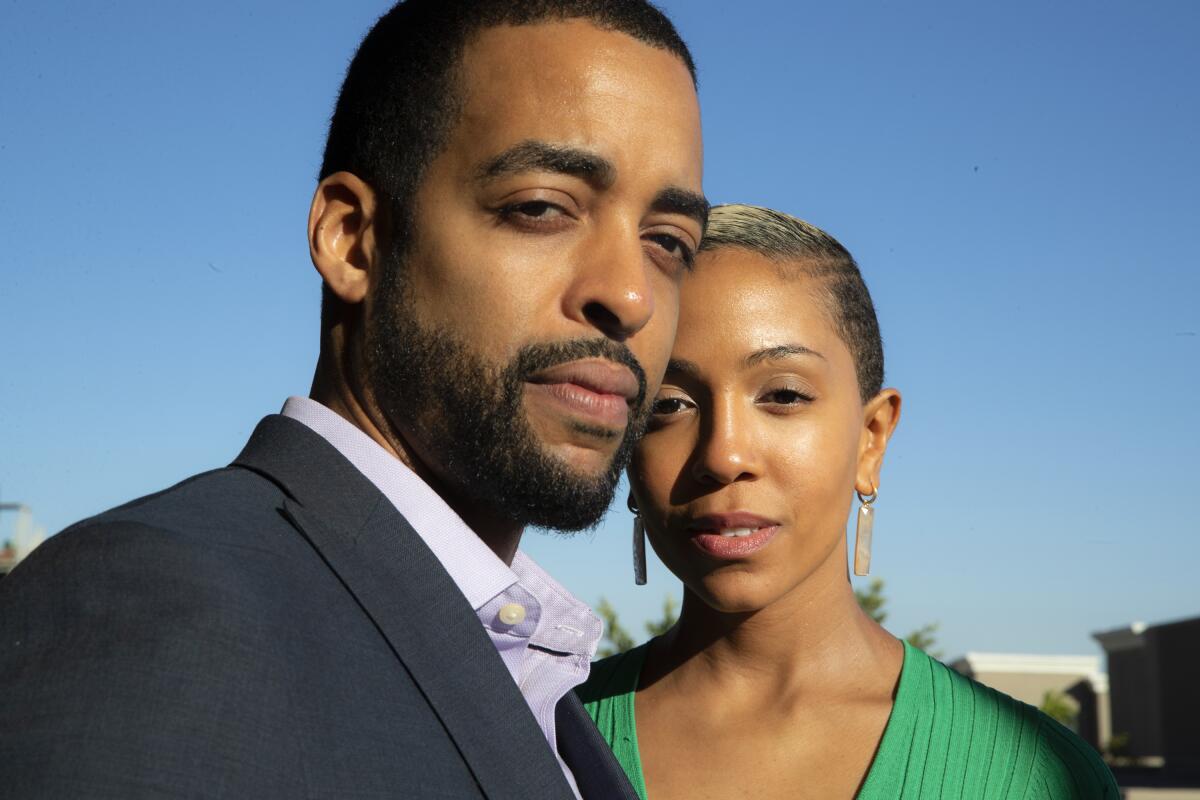
Rashaad Ernesto Green and Zora Howard cowrote indie drama “Premature” in response to both New York City’s rising gentrification and the lack of black female protagonists in love stories.
The black romantic drama is currently enjoying something of a genre renaissance after nearly two decades of stagnation.
From prestige films like Barry Jenkins’ “If Beale Street Could Talk” to midrange studio fare like Stella Meghie’s “The Photograph,” varied depictions of black love are starting to reemerge on a large scale for the first time since the genre’s heyday in the ’90s and early aughts.
The genre reemergence is largely due to the efforts of filmmakers like Meghie and rising talent Rashaad Ernesto Green, whose ascent through the ranks of Hollywood coincides with audiences’ growing appetites for love stories specific to the black experience.
Like Meghie, Green cited genre classics “Love & Basketball” (2000) and “Love Jones” (1997) as cinematic inspiration behind his latest offering, the indie romance “Premature,” which he cowrote with its breakout lead actress, Zora Howard.
“Those films that we grew up on helped us begin to understand ourselves in love,” said Green. “We didn’t really feel like we had seen one in a while, and especially not one set in New York. We decided to write what we knew: We both had been in love in Harlem before and could pull from those experiences.”
“Premature” which premiered at last year’s Sundance Film Festival and is now playing in limited release, is in equal measure a portrait of young black love and a love letter to the New York of yore, before gentrification altered the identity of the city and before technology corrupted the practice of dating.
The 90-minute movie follows Ayanna, a 17-year-old poet, as she experiences a life-changing summer romance with Isaiah, a 23-year-old music producer new to the city (played by Joshua Boone).
Zora Howard co-wrote and stars in ‘Premature,” Rashaad Ernesto Green’s absorbing romantic drama.
Both New York natives, Green and Howard say they wrote the story partially in response to the dearth of representation for born-and-bred New Yorkers, a demographic that is steadily dwindling as the city is overtaken by transplants.
“We don’t often see our side of Harlem expressed onscreen,” said Green. “And we were very interested in telling a young black love story before Harlem changed forever and became something other than what we remembered it to be.”
“An extended Upper West Side,” said Howard.
“And we wanted to do it on film, specifically,” Green continued. “To record these beautiful young black bodies on celluloid. When you watch films that were shot on film, there’s an automatic sense of nostalgia that you get. We wanted to present something that would have lasting power, that wouldn’t be specific to a time and place but had a forever quality to it.”
We wanted to do it on film ... to record these beautiful young black bodies on celluloid.
— “Premature” director and cowriter Rashaad Ernesto Green
On the other hand, the filmmakers also wanted to make a movie about black life divorced from the racism and violence present in both headlines and media at the time.
“It felt like if you wanted to see black people in the theater, [all you would see was] assault, violence and aggression on the black body over and over again,” said Howard. “And I just remember walking out of a couple of theaters like, ‘Whoo ... Now where do I go to restore?’”
“So we wanted to present our lives in a way that anyone could relate to,” said Green. “We very much wanted to promote black love instead of black pain.”
“Premature” originated as a short that Green wrote and directed in 2008 while attending NYU Graduate Film School. It starred Howard as a 14-year-old girl dealing with an unexpected pregnancy.
“I had met Zora when she was 11,” said Green. “I was very blown away by her wisdom. She was talking about things I was just beginning to think about in my early 20s.
“I was thinking about who I could cast that would be able to portray something that they hadn’t necessarily experienced, and I thought of my young friend Zora. She was 14 at the time and came in and absolutely murdered the role.”
The short did well on the festival circuit; it went on to win a short film award at the American Black Film Festival and was distributed by HBO. But it wasn’t until 2016 that Green and Howard teamed up again to cowrite a feature-length story under the same title.
Despite being longtime friends, the pair struggled at first to figure out a writing process that worked for both of them.
“We’ve collaborated artistically before but it’s something completely different to know someone as a writer,” said Howard. “You’ve got to get into the depths of the pain, psyche and emotional life of your cowriter. We couldn’t just start writing, we had to talk some things through. We shared a lot, things we didn’t know about each other in over 10 years of friendship.”
“We would basically talk for hours without any real direction about our lives, how we feel about love and our experiences,” said Green. “We’d just riff off of each other, and then we just took all of that and compiled it on paper. We basically asked ourselves what we felt was missing in black cinema and went from there.”
“Once we knew what the foundation of this was — the blackness of it, the love and the Harlem of the story — we just did a deep dive into a lot of art that inspired us individually,” said Howard. “Listened to a lot of music, watched a lot of films shot on film together and talked a lot.
“Raa and I talked about our first loves and histories with love and heartbreak, but we also talked about us presently trying to figure out how to love,” she added. “That’s an ongoing thing, a forever thing, so we wanted our characters to reflect that.”
The film was shot on 16mm on a shoestring budget, with production lasting just under three weeks “in a very, very contained two- to three-block radius,” said Green.
“We shot in my apartment, friends’ apartments, the park around the corner and the restaurant and laundromat up the street. There were a lot of favors.”
“It’s difficult for black creators to actually reflect their truths because there’s a whole lot of other stuff to get through,” said Howard. “Because Rashaad for the most part self-financed a lot of it, I think we were able to stay true to the story we were trying to tell. On a different project with a different budget with a different producer at the top, there’s compromises you have to make. We were able to dramatize small, intimate and what in other stories might even look mundane moments because it was Ayanna’s story.”
“We didn’t want it to be formulaic or the same kind of story that you see all the time,” said Green. “We also wanted to make sure that even if this relationship weren’t to work out, it wasn’t because the man was scandalous. We wanted to present a love that was absolutely real for both of them and that pushed them both to grow from the experience.”
A lot of this film is about finding love in another person for the first time, but there’s also Ayanna learning how to love herself and what it really costs.
— “Premature” actress and cowriter Zora Howard
While Green is protective of both of his lead characters, the story is deliberately told from Ayanna’s perspective because of the lack of onscreen representation for black female protagonists.
“There are too many films that have the male gaze and male perspective, in my opinion, especially when it comes to love stories,” he said. “Both characters are very much going through something that’s changing them, but to house it within one perspective gives us an insight into her world and how she’s growing from it. I thought [that] would benefit the film and folks’ takeaway from it.”
“What is most often the case in film, media in general and the world is we’re pitted against the young black woman,” said Howard. “Even though Isaiah is going through some very real things and we feel for him deeply as well, we never doubt who we are on this ride with, and that was important to us.”
“It became a very fine balancing act in order to draw him in such a way where we don’t dislike him despite him presenting behaviors that are complicated and real,” said Green. “Both people grow from the experience because love sometimes helps us discover who we are and the people that we will be. It’s those experiences that help shape us.”
“A lot of this film is about finding love in another person for the first time, but there’s also Ayanna learning how to love herself and what it really costs us to love ourselves,” said Howard. “How much continuous work it takes. We never stop learning, and that’s what we see Ayanna go through — how to choose herself.”

More to Read
Only good movies
Get the Indie Focus newsletter, Mark Olsen's weekly guide to the world of cinema.
You may occasionally receive promotional content from the Los Angeles Times.
